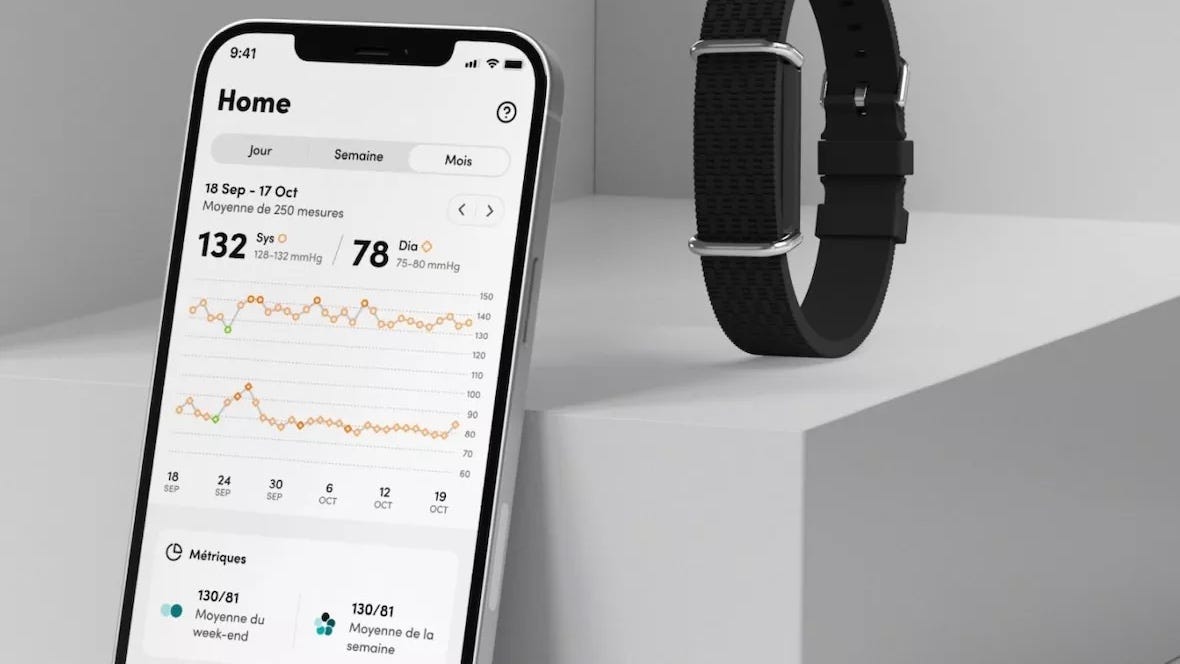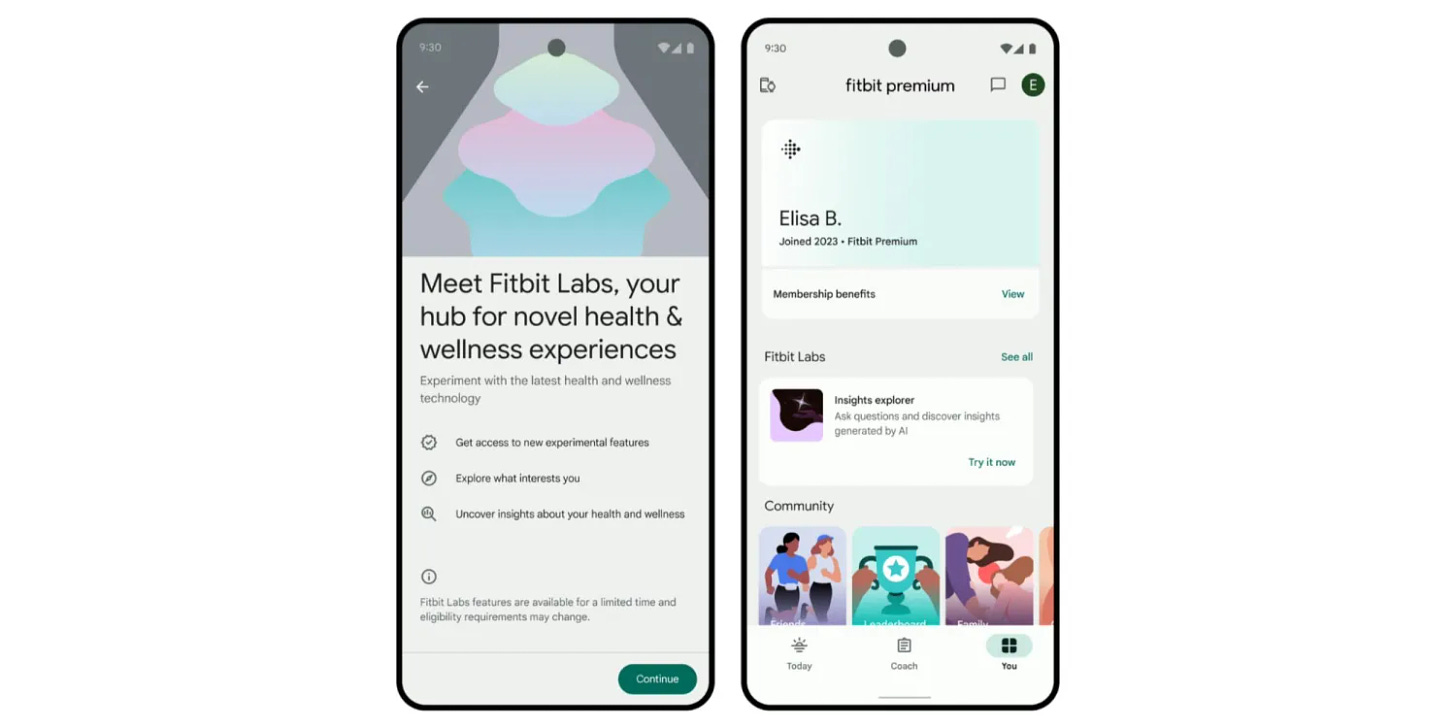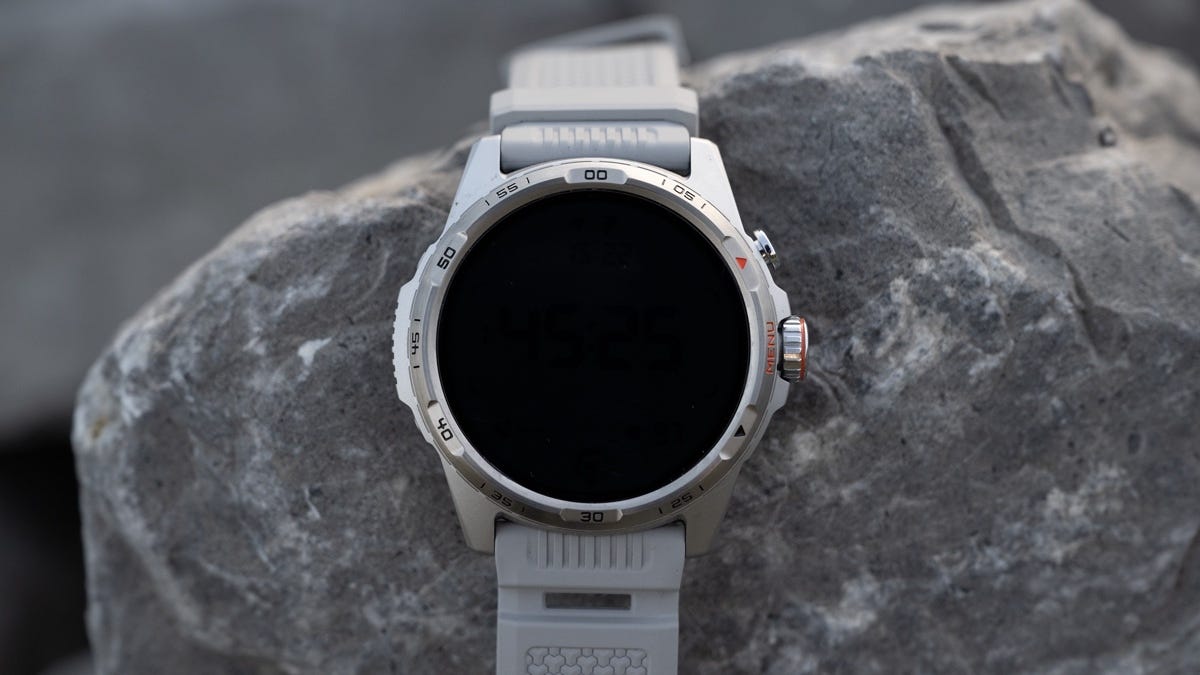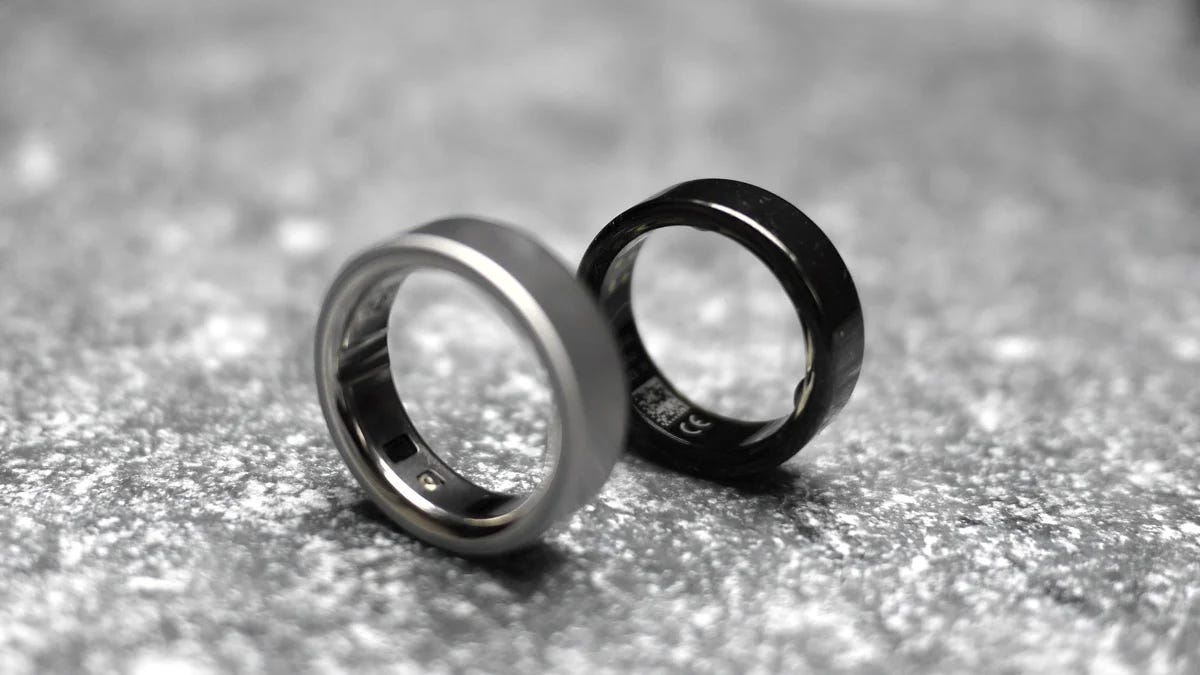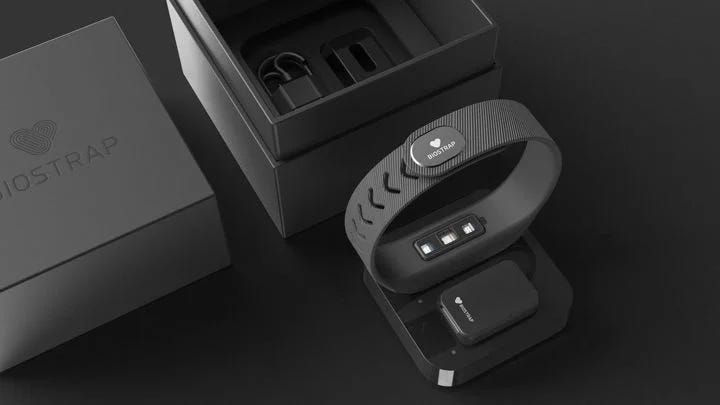Wearables news roundup #28: Fitbit, Whoop, Aktiia, Oura and AI
The big wearables news this week
Welcome back to another big week in wearables – and our weekly news round-up.
Hello to a big influx of new subscribers this week – your support in making PULSE by Wareable an active part of the community isn’t taken for granted.
There’s a healthy bunch of AI news in this week’s roundup. Let’s go.
🩸Aktiia gains CE mark for AI-trained blood pressure tracking app
Aktiia, known for its continuous blood pressure monitoring wearable, has received CE approval for an app that can measure blood pressure using just the smartphone camera using AI.
Akttiia says that the app works without calibration with a cuff. The measurement is taken in 90 seconds, by the user placing their finger over the light of the smartphone camera.
We’ve seen previous applications of this for HRV measurement – but it would offer huge democratization of blood pressure tracking and a significant breakthrough for millions of hypertension sufferers.
It’s a landmark development – and if it comes to market – could scare the likes of Apple, Huawei, and Samsung which are working on, or have already launched, blood pressure monitoring in a smartwatch.
The company trained generative AI models on its own set of 11 billion data points generated from its Aktiia band which launched in 2021.
And it has already received a coveted CE mark in Europe, which paves the way for a release in 2025.
Dr. Josep Solà, co-founder and CTO of Aktiia, who worked on the technology, told TechCrunch that the CE mark comes under the EU’s new Medical Device Regulation (MDR):
“It’s a new regulation for medical devices in Europe. You need to run clinical trials and you need to prove performances,” he said.
“When we released our first product, that allowed us to start compiling a lot of data. Now we have a massive dataset within the company’s 11 billion data points of annotated data that we could use to train this new AI. It went to a level of accuracy that we could pass all the regulations for CE marking.”
🤖 Fitbit is testing out its Gemini-powered AI insights
Back in March, Google revealed that Fitbit would launch a Gemini-powered AI health assistant – and it’s started to roll out.
The service enables users to ask questions about their workouts and health.
This feature, called Insight Explorer, is currently in public testing via Fitbit Labs.
Users in the U.S. can participate if they meet specific criteria, including being 18 or older and using the Fitbit app on Android. You need a Fitbit Premium subscription, but that’s not enough: Labs is only available to select users right now, with no open criteria for being selected.
Examples of questions you can ask are:
Averages (Example: “What was my average daily step count last month?”)
Trends (Example: “How are my Active Zone Minutes trending?)
Correlations (Example: “Do my Active Zone Minutes have an impact on my resting heart rate?”)
Highest/lowest values for a period (Example: “What day did I sleep the longest last month?”)
Medians (Example: “What is the median number of steps I have taken this year?”)
Personal bests/worsts (Example: “When was my most restful night of sleep last month?”)
Comparisons (Example: “How did my bedtime differ on weekends versus weekdays last month?”)
General explanations and definitions of health and wellness terms (“Example: “What is resting heart rate?”)
Mobvoi launches rugged new TicWatch Atlas with four day battery life
The Mobvoi TicWatch Atlas is an all-new, rugged smartwatch designed for those who need more of an outdoor fix than the brand’s standard Pro 5 and Pro 5 Enduro.
With advanced features like Heat Map visualizations of activity, Fall Detection, and Emergency SOS, it offers a competitive alternative to the Galaxy Watch Ultra and, to a lesser extent, sports watches like the Garmin Fenix 8.
The Atlas boasts 90-hour (four day) battery life in the smartwatch mode, and a comprehensive suite of health and performance tracking features via Wear OS.
Priced at $349.99, it’s available in black and silver finishes.
💤 Oura aces new sleep accuracy study
A new study has shown that Oura leads key competitors when it comes to the tracking of sleep stages.
This study assessed the accuracy of three consumer sleep trackers — Oura Ring Gen 3, Fitbit Sense 2, and Apple Watch Series 8 — by comparing them to polysomnography (PSG), the gold standard for sleep evaluation.
Thirty-five participants wore all three devices during a single-night inpatient study while also undergoing PSG monitoring.
For detecting sleep vs. wake states, all devices performed well, with a sensitivity of 95% or higher. However, accuracy in detecting different sleep stages (light, deep, REM) varied:
Oura: Sensitivity ranged from 76% to 79.5%, showing good agreement with PSG across sleep stages.
Fitbit: Sensitivity ranged from 61.7% to 78%, but it tended to overestimate light sleep and underestimate deep sleep.
Apple Watch: Sensitivity ranged from 50.5% to 86.1%, underestimating wake and deep sleep while overestimating light sleep.
It’s interesting but pretty much confirms what we already know. Wearables can be very good at telling you how much sleep you got, but the details of sleep staging can be hit-and-miss. Even Oura, which comes out top in this study, showed decent sleep staging accuracy – but far from perfect.
And as we have maintained for years – having that data isn’t even that useful. Knowing how much REM sleep you get isn’t actionable, and it’s far more important to develop habits like good sleep consistency, and knowing your sleep chronotype and how sleep/wake times fit with your circadian rhythm.
The good news is…Oura is excellent at that stuff, too.
🧠 Biostrap partners for big stress tracking boost
Biostrap has announced a new partnership with Philia Labs, which could lead to more accurate stress tracking.
This collaboration aims to enhance wearable technology by incorporating real-time monitoring of sympathetic and parasympathetic arousal, providing users with a more accurate understanding of their stress levels.
Traditional heart rate variability (HRV) metrics have been limited in their ability to measure the body’s real-time stress response, often leading to unreliable stress scores.
Regular PULSE by Wareable readers will know that Biostrap is no longer a consumer device, and is working in B2B fields – especially for first responders.
The new features will help support first responders and military personnel, and enhance performance for elite athletes. Read more in our deep-dive feature:
🦶Whoop CEO talks changing his mind about step-tracking
Will Ahmed, CEO of Whoop, explained the company's shift in approach to tracking steps after previously dismissing them as an inadequate fitness metric.
Last week we mentioned it was coming, but hours later it showed up in our app. Whoop now tracks steps.
We offered a slightly sarcastic take on the U-turn last week, but it was interesting to see Will Ahmed take to LinkedIn to put his hands up to getting things wrong on steps (there’s funny short video there) – and explain why the change in heart. It’s a nice bit of communication
“So, why are we introducing Steps now, and why did I change my mind? First, there’s more research and emphasis within performance science communities on the power and importance of movement for health and longevity.
Researchers have found that taking at least 8,200 steps a day lowered risk for chronic diseases and conditions including high blood pressure, sleep apnea, diabetes, obesity, and depression. Individuals looking to cut weight often also use steps and walking as a mode to burn calories without increasing appetite,” Ahmed wrote on LinkedIn.
Second, we’ve heard from our members that they want it. I mean they really want it. At our core, Whoop is a membership. Our mission is to help our community unlock their performance and improve health.
Third, I heard a lot of Whoop members would also wear a completely different device just to track steps. That’s a terrible member experience.
The science of walking being a huge health benefit isn’t exactly new. So the change does still indicate, to me anyway, that Whoop is looking to appeal more to the general user.
But it’s always great to see a company listen to its user base. I’ve been keeping an eye on my step count within the Whoop app. The feature is in beta at the moment (insane that we have a pedometer in beta in 2024) and it seems to be tracking a little high right now. But Ahmed also confirmed they were still tweaking the algo.





